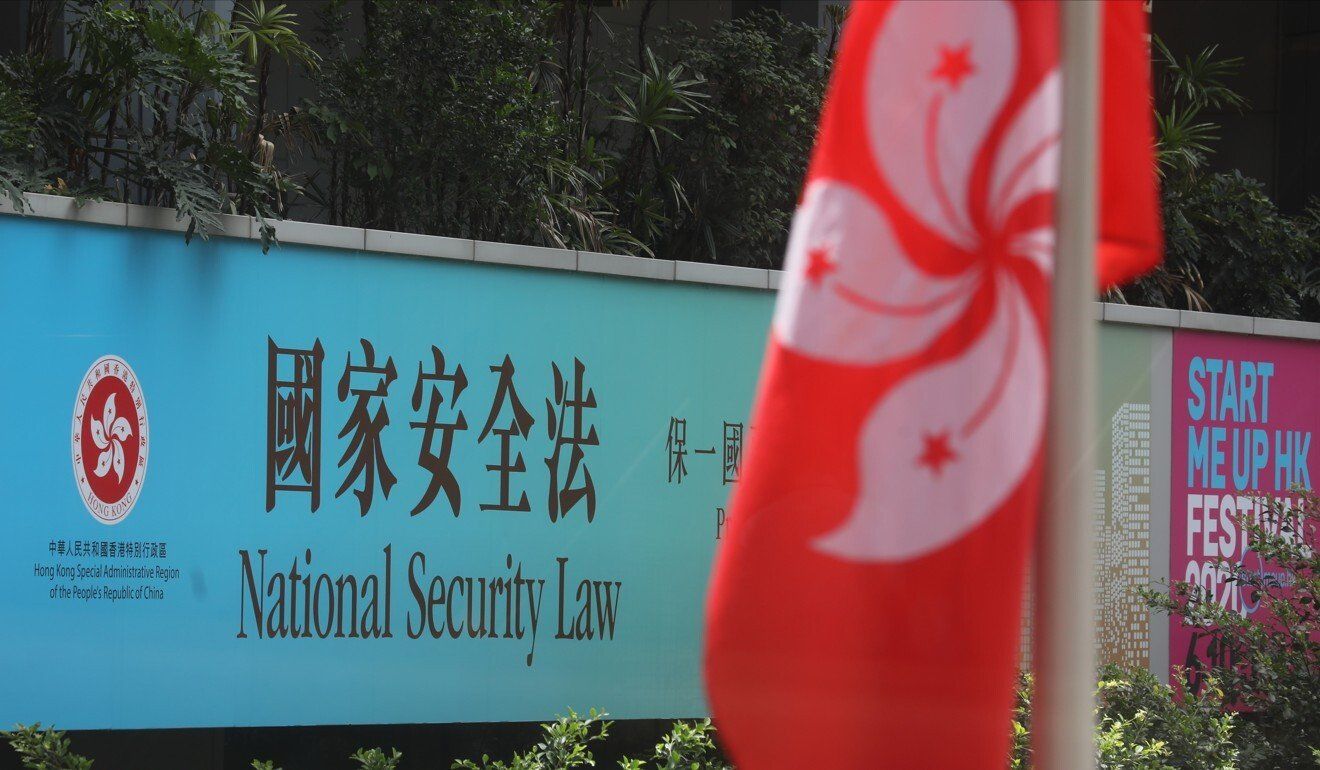Education Bureau releases 1,200-word defence of new guidelines for city’s teachers and schools, and says it needed to clarify unfounded allegations and misunderstandings in the media.
Education chiefs hit back on Monday at the “malicious labelling” of national security education in Hong Kong as “brainwashing or spoon-feeding young children”, adding it was imperative to strengthen students’ critical thinking to guard against fake news about the topic.
In a 1,200-word article, “debunking myths about implementing national security education in Hong Kong schools”, the Education Bureau said it was “obliged to clarify” what it said were unfounded allegations and misunderstandings in the media about the guidelines it issued earlier this month.
The guidelines aimed to bring the city’s schools in line with the sweeping national security law, covering all aspects from management, curriculum and teaching, to pupils’ behaviours inside and outside school.
After the security law, which outlaws acts of subversion, secession, terrorism and collusion with foreign forces, came into effect last June, the government was required to promote national security education at schools and universities.
The guidelines, which spelt out the teaching framework for pupils of all grades, suggested national security be taught through various subjects such as civic education, geography, biology and music.
They also told schools to call police in “grave or emergency” situations when pupils chanted slogans or displayed separatist materials.
In response to criticism in the media, the article said: “The [bureau] disagrees categorically with the malicious labelling of national security education as ‘brainwashing or spoon-feeding young children’.”
The framework required primary pupils aged between six and nine to learn about the names of the four offences under the security law, the national symbols, and the law enforcement agencies in the city.
Teachers should be able to simplify relatively complex concepts for young pupils by means of story books, games and analogies to help them better understand, the bureau said.
The article said these initiatives helped students gradually understand and develop their sense of national identity, law-abidingness and rights and responsibilities under the Chinese constitution and the Basic Law.
“The view that young children as early as six years old can be taught about national security law has been played up in some media with dubious intent. This is indeed a misrepresentation of the [bureau’s] curriculum framework,” the article said.
The bureau added it believed critical thinking skills would also be part of national security education, claiming media literacy should be strengthened among pupils as “fake news, hearsay, or unproven allegations could be hazardous to national security”.
 The national security law should not be taught as a controversial topic, according to Hong Kong education chiefs.
The national security law should not be taught as a controversial topic, according to Hong Kong education chiefs.
It also reiterated that national security “should not be taught as if it is a controversial topic”.
“Instead, it should be clearly pointed out that safeguarding national security is the responsibility of all nationals and that there is no room for debate or compromise,” the article read.
Ip Kin-yuen, vice-president of the Professional Teachers’ Union and a former opposition lawmaker representing the education sector, believed the article would achieve little.
“Instead of criticising the media, the bureau should rather focus on doing its job better. For one, they did not hold a press conference when they released the guidelines,” said Ip.
“They should also hold proper consultation sessions among educators and members of the public to explain about the guidelines in detail, listen to their thoughts and opinions, as well as respond to questions and even defend it for themselves if they want.”
Primary school principal Wong Kam-leung, chairman of the pro-establishment Hong Kong Federation of Education Workers, agreed with the bureau’s article, and said pupils should learn more about media literacy so as to look into issues from different aspects.
“For primary pupils in lower grades, it is important also to cultivate their sense of national identity,” he said.
Wong said he expected some schools to initiate preparations for national security education soon as classes resumed after the Lunar New Year from Monday.















